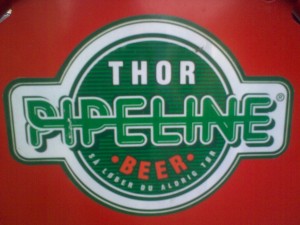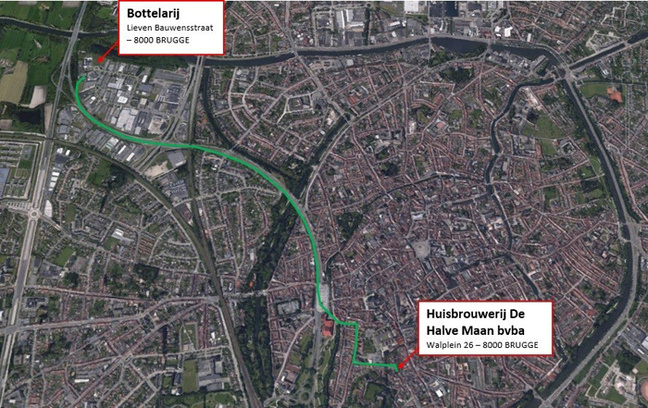Market Data

June 8, 2016
And Now for Something Completely Different….
Written by Sandy Williams
The oil pipeline business has been suffering due to the crash in oil prices but here is something to cheer about for pipeline producers –the beer pipeline.
In Bruges, Belgium brew master Xavier Vanneste is about to open the taps to send his beer from the De Halve Maan brewery along a 3 kilometer pipeline to a bottling company. The fans of the brewery will not be able to siphon off the sudsy beverage but can contribute to the cost of the pipeline in return for a lifelong beer drinking IOU.
“We have several formulas: bronze, silver and gold,” said Vanneste. “If you put in 7,500 euros (US$8,350), you will receive for the rest of your days, every day one bottle of Bruges Zot.”
The IOU plan resulted in 10 percent of the $4.5 million pipeline being financed by local support.
The pipeline can carry 1,500 gallons of beer per hour at rate of 12mph. The pipe traverses the historic city six feet underground in most places but goes to a depth of 100 feet in some. The pipeline will relieve the congestion of brewery trucks along the narrow cobblestone streets, delivering beer to the bottling plant in just 10 to 15 minutes. The pipeline will virtually eliminate the 500 trucks that previously transported the beer.
“In time, this innovative investment plan would reduce the amount of transport by heavy goods vehicles by 85 percent,” said Bruges’ Alderman for Spatial Planning, Franky Demon. He added the project is a “win-win situation for everyone.”
In Gelsenkirchen, Germany a 5 kilometer pipeline connects bars in the 60,000 seat Veltines Arena with continuous flow of beer to patrons. Four cooling centers store 52,000 liters of beer and connect to over 100 bars and restaurants located inside the stadium. The beer flows at a rate of 14 liters per minute providing plenty of refreshment to thirsty fans.
 One of the first beer pipelines was the Thor Pipeline in Randers, Denmark that carried beer from the Thor Brewery under the street to some of the city bars. The brewery moved out of town in 1990 and eventually was bought by Royal Unibrew. The tradition is said to remain alive via a tank that continues to supply beer to restaurants and pubs.
One of the first beer pipelines was the Thor Pipeline in Randers, Denmark that carried beer from the Thor Brewery under the street to some of the city bars. The brewery moved out of town in 1990 and eventually was bought by Royal Unibrew. The tradition is said to remain alive via a tank that continues to supply beer to restaurants and pubs.
In Munich, pipes have been used to transport beer more efficiently to tents at the Oktoberfest Festival. In Cleveland, Ohio, The Great Lakes Brewery Company uses pipes to carry beer from its brewery to its bar/restaurant across the street.
Unfortunately for steel pipe producers, the beer pipe in Bruges is constructed of high-density polyethylene. But, with the technological know-how of the American manufacturer, US producers could certainly come up with something in steel that could start a flow of brew across the country. Who needs oil pipelines if there is an option for beer?








